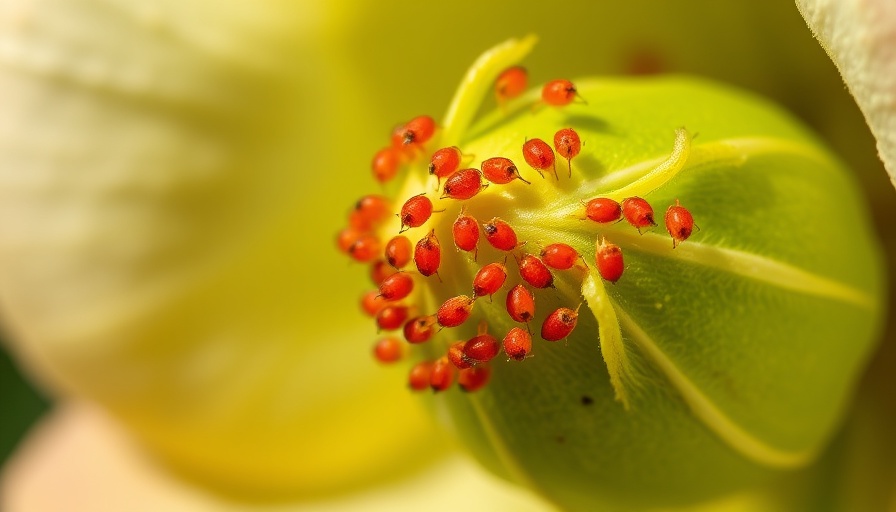
Understanding the Aphid Problem in Your Garden
As you strolled through your garden, the sweet scent of blooming roses fills the air. But then, you notice something is off: tiny, pear-shaped insects are nestled among the flower buds and stems. These little intruders, known as aphids, are notorious pests that can wreak havoc on your cherished plants. Understanding how to control aphids on roses is vital for any garden enthusiast.
What Are Aphids and Why Are They a Threat?
Aphids are soft-bodied insects belonging to the superfamily Aphidoidea. With over 4,000 species, they can invade nearly any plant, but they have a particular affinity for roses. The most common species affecting roses is the green or pink Macrosiphum rosae. These insects can multiply rapidly, especially since females give birth to live young, often without the need for males.
They feed on the sap of the plant, which can lead to stunted growth, wilting, and even the spread of plant diseases. Their presence can diminish the overall health and appearance of your flower garden, making it imperative to take action at the first signs of infestation.
Effective Strategies for Controlling Aphids on Your Roses
To keep your roses healthy and beautiful, it's essential to adopt proactive measures against aphids. Here are some effective strategies to ensure they remain at bay:
Attracting Aphid Predators
One of the best ways to control aphid populations is by inviting natural predators into your garden. Ladybugs, lacewings, and predatory wasps thrive on aphids. By planting native wildflowers and herbs, you can create a habitat for these beneficial insects. Not only will they help manage aphid numbers, but they will also contribute to a thriving ecosystem in your yard.
Utilize Water for Small Infestations
For mild infestations, a simple solution may involve your garden hose. A strong jet of water can dislodge aphids from your roses. Aim to spray the undersides of leaves where aphids like to hide. This method not only removes the pests but is also eco-friendly, preventing harmful pesticide residues from entering your garden.
Organic Pesticides for Advanced Infestations
If the aphid problem persists, you might consider using organic pesticides. Neem oil and insecticidal soaps can be effective at reducing aphid populations without harming beneficial insects or the garden environment. Ensure you follow the directions for application carefully and ideally spray in the evening to minimize the impact on pollinators.
The Importance of Prevention
While controlling an aphid infestation is crucial, prevention is equally important. Regularly inspect your plants, especially young rose shoots, for early signs of aphids. Implementing companion planting with herbs like garlic or chives can deter aphid infestations. Healthy plants can also better withstand aphid attacks, so ensure your roses receive proper nutrients and water.
Future Considerations for Gardeners
The presence of aphids can serve as a reminder for gardeners to foster sustainable practices. By understanding the delicate balance within your garden’s ecosystem, you can manage pests more effectively while promoting plant health. Regular maintenance such as pruning, providing proper shade, and using compost can significantly enhance the resilience of your rose bushes against pests.
Conclusion: Take Control of Your Roses
Aphids may be small, but their impact on your garden can be substantial. By employing natural methods to attract predators, using water pressure for small infestations, and resorting to organic pesticides when necessary, you’ll be able to protect your roses and enjoy an abundant bloom season. As you deepen your gardening knowledge and practice preventive measures, your rose garden can flourish without the threat of aphid invasions.
 Add Row
Add Row  Add
Add 




Write A Comment